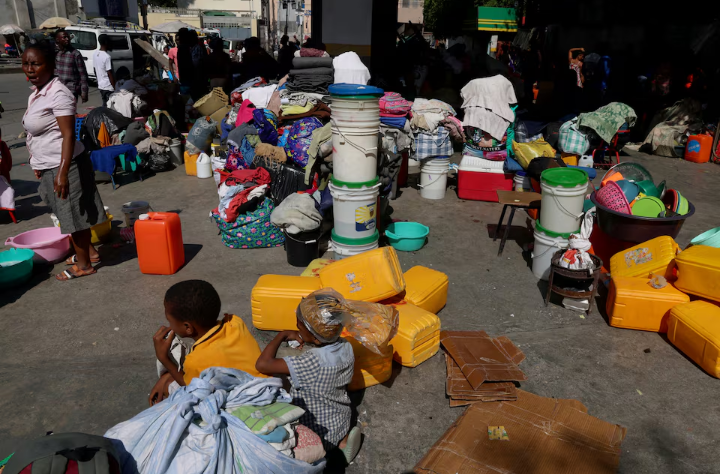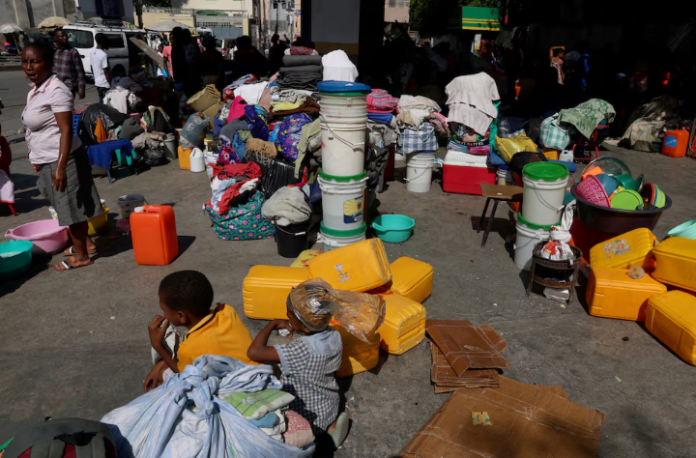Haiti, a country already grappling with deep-rooted challenges, is facing an increasingly dire humanitarian crisis. According to aid organization Save the Children, the situation in the country is worsening at an alarming rate as violence continues to escalate, particularly in the capital city, Port-au-Prince. The rise of powerful gangs, overwhelmed security forces, and a lack of essential resources have pushed Haiti to the brink of collapse. In this article, we explore the gravity of the situation and what is being done to address the crisis.
The Crisis in Haiti: More People Displaced Than Ever Before
In the first quarter of 2025 alone, more than 78,500 people have been displaced, an alarming figure that is more than double the number of displacements seen in the same period last year. The violence in Haiti is mostly concentrated in the capital, where armed groups control nearly every neighborhood, making it extremely difficult for people to escape. Save the Children’s Haiti head, Chantal Sylvie Imbeault, describes the plight of the children as “a nightmare,” trapped in areas controlled by ruthless gangs that have now gained control of key routes out of the city.
Haitians who are fortunate enough to escape the violence have sought refuge in places like petrol stations, as the streets are no longer safe. The powerful gangs have made it nearly impossible for humanitarian efforts to reach those in need, as they restrict movement and prevent essential aid from getting through.
A Fractured Government Struggling to Respond
Haiti’s government, led by a transitional council, has struggled to maintain control amid the expanding reach of armed groups. The council has lost significant public support, with citizens increasingly frustrated by its inability to restore order. Recently, thousands of Haitians took to the streets in protest, demanding more effective action from their leaders.
In response to the growing crisis, the council has resorted to an unorthodox solution—collaborating with a paramilitary group, the Brigade for the Security of Protected Areas, which was originally formed as an environmental security force. This controversial move highlights the desperate measures the government is willing to take to regain control of the situation. The paramilitary group, which has previously clashed with the police, is now being enlisted to fight against the gangs, signaling a breakdown in Haiti’s political stability.
International Support and Foreign Aid Challenges
International support, primarily from Kenya, has been a key component in the fight against gang violence in Haiti. Kenyan forces first arrived in Haiti last June as part of a multinational mission to stabilize the country.
However, the situation remains precarious, with Kenyan officers suffering casualties in recent weeks due to violent clashes with the gangs. Currently, around 1,000 security personnel are part of the mission, but they face significant challenges on the ground.

Compounding the issue is the reduction in foreign aid, with many governments, including the U.S., making drastic cuts to funding for Haiti. While the U.S. initially froze foreign aid funds when President Donald Trump took office, more than $64 million was later allocated to support Haitian police and the Kenyan-led mission. However, Save the Children warns that continued funding cuts are jeopardizing the effectiveness of the international response.
What’s Next for Haiti?
As Haiti struggles to regain control, the need for international solidarity has never been greater. The gangs’ control over much of the capital, combined with the government’s inability to address the issue on its own, has created a perfect storm of violence and displacement. While the transitional council is desperately seeking regional support at summits like the one in Honduras, time is running out for many Haitians who are caught in the crossfire.
In these trying times, it is crucial for the international community to come together and increase their support for Haiti. Without urgent action, the crisis could spiral further out of control, leaving millions of people in an increasingly desperate situation.



